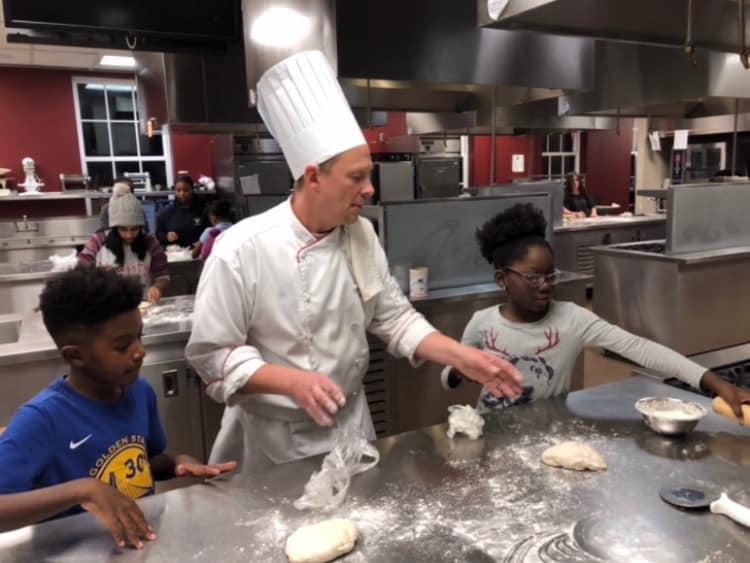Culinary Arts Program
The Culinary world of arts in our steam world 6-week program has just finished. Our students made this session one for the books. This marked our very first hybrid model steam club and it was wildly successful.
Successful Remote Learning
Due to current challenges, we offered Zoom style meetings and learned how to make Chicken Alfredo. Our students learned real world culinary terms that they can take with them in their culinary journey. Why is it important to learn the language of cooking? “If we understand what those words mean then we can follow the recipes and orders in a kitchen or on a prep line.”
We had a baking session where each student focused on how to decorate a cake and what different baking terms meant, like crumb coat. It was a delicious six weeks. In the coming future we are blasting off to Mars in our 4-week look into space exploration and Mars survival unit. We are so excited to see where our students will take us. Join us on Tuesdays at 6PM.
Students in our STEAM WORLD program have just completed an exciting 6 week hybrid steam club: Culinary. When people think about Culinary, most people say one of the following, oh yeah? Like Gordon Ramsay? What about Cupcake Wars? The skills our youth are developing in our program are real life skills that they can apply to their everyday life. We can’t always be with our children but we can encourage them to try new and different things. We are human, we eat everyday if we are lucky. The food our students learned to cook involved the kids understanding the culinary language to develop the courage to speak up and speak out if they know how to cook or make anything. Why is it important to learn the language of cooking? “If we understand what those words mean then we can follow the recipes and orders in a kitchen or on a prep line” This was the response from a few of our students. Studies show children involved in their meal preparation often go on to make healthy food wise decisions. They are food conscious when at the grocery store, asking their parents if they can try a sweet potato instead of an idahoan potato. Letting the children expand their taste profile, breaks a generational pattern of only mom or dad in the kitchen. This allows children to learn from watching and they will forever carry how mamaw or papaw used to use the same recipe. Now they can help create their new and individual recipe.
https://www.nhlbi.nih.gov/health/educational/wecan/downloads/cookwithchildren.pdf



